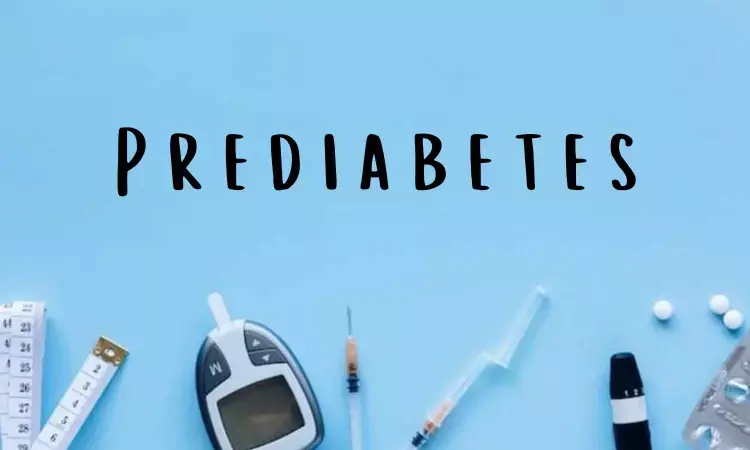- Home
- Medical news & Guidelines
- Anesthesiology
- Cardiology and CTVS
- Critical Care
- Dentistry
- Dermatology
- Diabetes and Endocrinology
- ENT
- Gastroenterology
- Medicine
- Nephrology
- Neurology
- Obstretics-Gynaecology
- Oncology
- Ophthalmology
- Orthopaedics
- Pediatrics-Neonatology
- Psychiatry
- Pulmonology
- Radiology
- Surgery
- Urology
- Laboratory Medicine
- Diet
- Nursing
- Paramedical
- Physiotherapy
- Health news
- Fact Check
- Bone Health Fact Check
- Brain Health Fact Check
- Cancer Related Fact Check
- Child Care Fact Check
- Dental and oral health fact check
- Diabetes and metabolic health fact check
- Diet and Nutrition Fact Check
- Eye and ENT Care Fact Check
- Fitness fact check
- Gut health fact check
- Heart health fact check
- Kidney health fact check
- Medical education fact check
- Men's health fact check
- Respiratory fact check
- Skin and hair care fact check
- Vaccine and Immunization fact check
- Women's health fact check
- AYUSH
- State News
- Andaman and Nicobar Islands
- Andhra Pradesh
- Arunachal Pradesh
- Assam
- Bihar
- Chandigarh
- Chattisgarh
- Dadra and Nagar Haveli
- Daman and Diu
- Delhi
- Goa
- Gujarat
- Haryana
- Himachal Pradesh
- Jammu & Kashmir
- Jharkhand
- Karnataka
- Kerala
- Ladakh
- Lakshadweep
- Madhya Pradesh
- Maharashtra
- Manipur
- Meghalaya
- Mizoram
- Nagaland
- Odisha
- Puducherry
- Punjab
- Rajasthan
- Sikkim
- Tamil Nadu
- Telangana
- Tripura
- Uttar Pradesh
- Uttrakhand
- West Bengal
- Medical Education
- Industry
GABA Supplementation Fails To Improve Blood Sugar Control Among Adults With Prediabetes

A recent study published in The American Journal Of Clinical Nutrition conducted by Tessa H. and colleagues. The study aimed at assessing whether oral gamma-aminobutyric acid (GABA) supplementation could enhance glucose homeostasis in individuals at risk of developing type 2 diabetes. The study's findings suggest that GABA supplementation doesn't improve postprandial glucose response in individuals at risk of developing type 2 diabetes.
While GABA is known as an endogenously produced neurotransmitter, it can also be obtained from dietary sources such as tomatoes and fermented foods. Previous research in rodent models had indicated potential benefits of oral GABA supplementation on glucose control and cardiovascular health. However, it remained unknown whether these potential advantages would translate to humans.
- Study Design: This randomised, placebo-controlled, double-blind, parallel-arm trial involved 52 participants with prediabetes, aged 50 to 70 years, and a BMI of ≥25 kg/m². The intervention group received 500 mg of GABA three times a day, while the control group received a placebo for 95 days.
- Primary Outcome: The primary objective of the study was to assess the effect of GABA supplementation on glucose response after an oral glucose tolerance test (OGTT).
- Results: The study concluded that GABA supplementation for 95 days did not result in a significant change in postprandial glucose response compared to the placebo group. After correcting for the false discovery rate, none of the secondary outcome measures, including fasting plasma GABA concentration, showed significant effects from GABA intervention at the group level.
However, the researchers noted that further research might be needed in different study populations. For example, exploring the effects of GABA in individuals with advanced diabetes or other cardiometabolic disorders could provide valuable insights.
While this study didn't find a significant impact of GABA supplementation on glucose control in prediabetic individuals, ongoing research into dietary and supplemental interventions for managing diabetes risk remains essential for identifying effective strategies to prevent and treat this prevalent condition.
Reference:
de Bie, T. H., Witkamp, R. F., Balvers, M. G. J., & Jongsma, M. A. Effects of γ-aminobutyric acid supplementation on glucose control in adults with prediabetes: A double-blind, randomised, placebo-controlled trial. The American Journal of Clinical Nutrition,2023;118(3):708–719. https://doi.org/10.1016/j.ajcnut.2023.07.017
Dr Riya Dave has completed dentistry from Gujarat University in 2022. She is a dentist and accomplished medical and scientific writer known for her commitment to bridging the gap between clinical expertise and accessible healthcare information. She has been actively involved in writing blogs related to health and wellness.
Dr Kamal Kant Kohli-MBBS, DTCD- a chest specialist with more than 30 years of practice and a flair for writing clinical articles, Dr Kamal Kant Kohli joined Medical Dialogues as a Chief Editor of Medical News. Besides writing articles, as an editor, he proofreads and verifies all the medical content published on Medical Dialogues including those coming from journals, studies,medical conferences,guidelines etc. Email: drkohli@medicaldialogues.in. Contact no. 011-43720751


